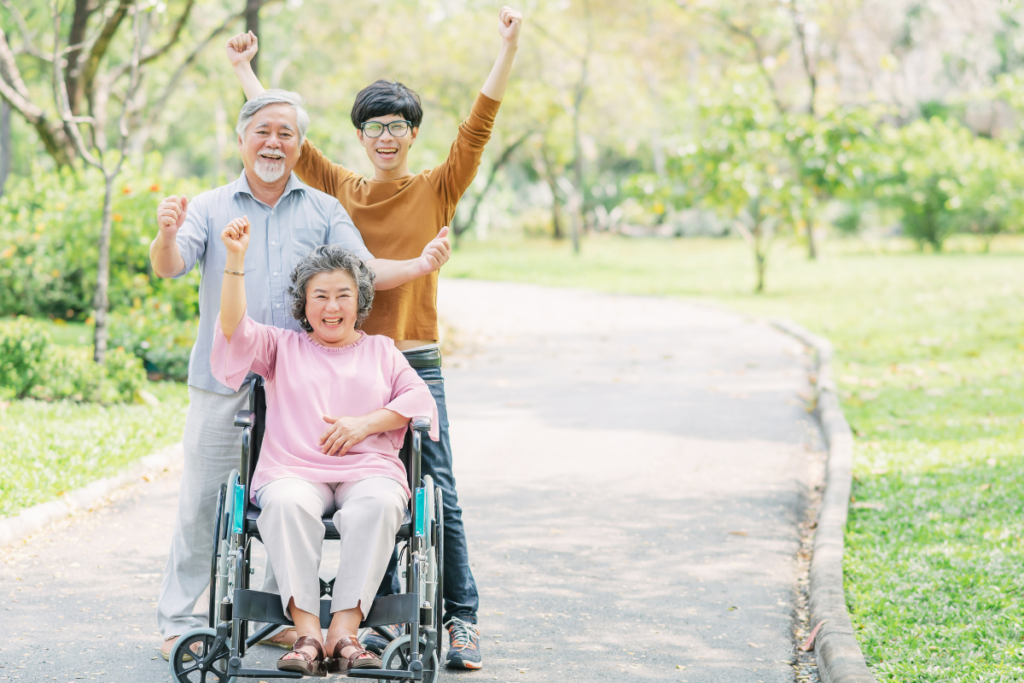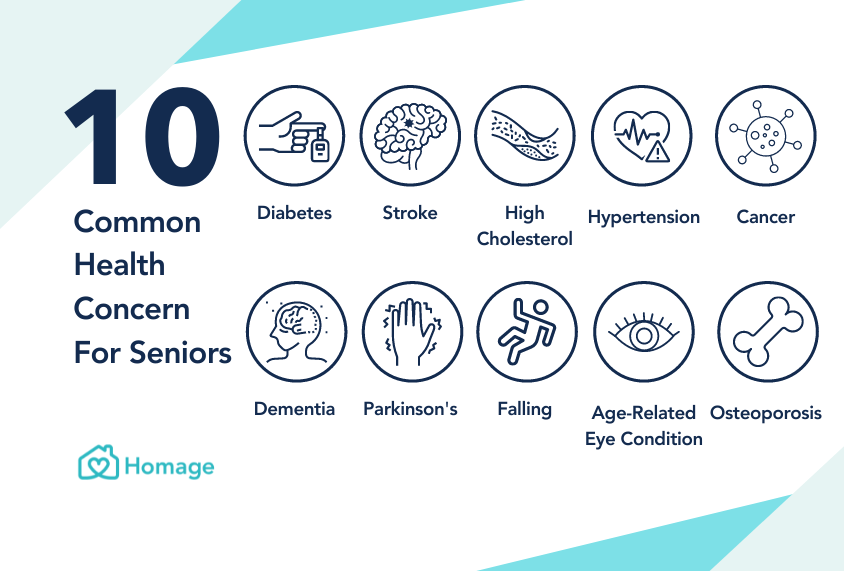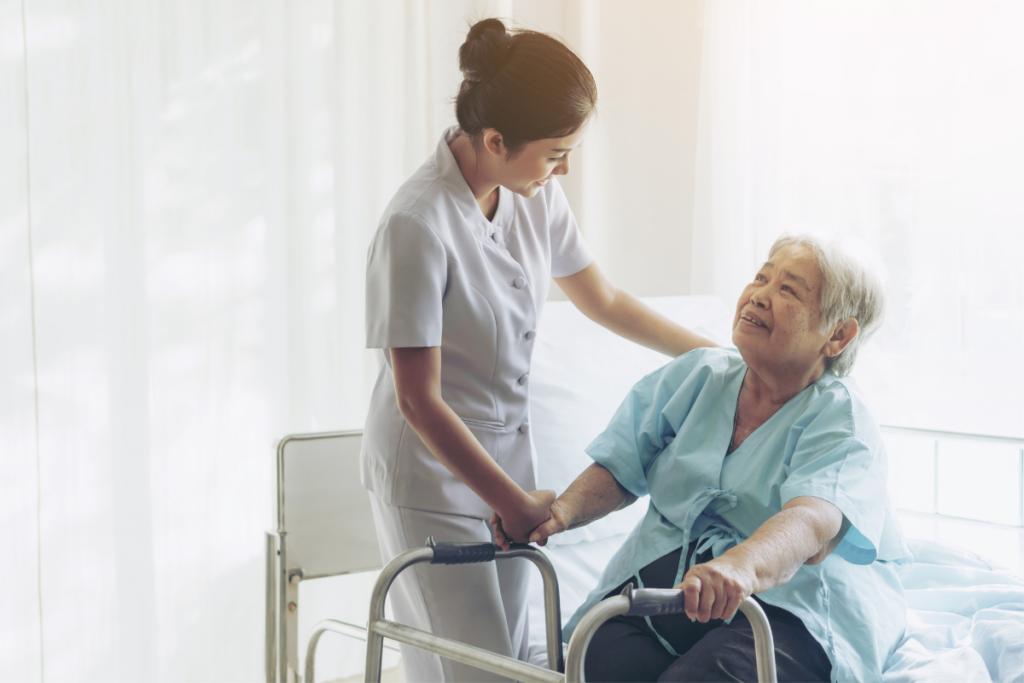Caring for Elderly Parents: 10 Commonly Asked Questions
As children, we rarely think about our parents growing older or tend to avoid thinking of it altogether. However, ageing is a natural and inevitable part of life and as our parents age, most of us are responsible to care for them. Ageing does not always mean that your parents immediately become dependent or frail; but it is important to take note of the progression of ageing and what you can do along the way. In this article, we delve into the 10 most asked questions about caring for elderly parents.

1. How can I tell if they are not able to care for themselves?
If you are not living under the same roof as your parents, here are a few questions you can have in mind for your next visit. These can be asked directly to your parents or even kept in mind during observation.
- Is my parent independent? Is he/she able to complete everyday tasks by themselves?
- Is my parent experiencing memory loss or confusion?
- Has my parent lost weight drastically?
- Can my parent feed themselves properly during mealtime?
- Is my parent mobile?
- Can my parents drive?
- Is the condition of the home still safe for my parent?
- Is my parent exhibiting any signs of distress or depression?
- Is my parent responsive to my questions or small talk?
- How is my parent’s vision? Has it deteriorated?
After going through these questions, you should have a better understanding of your parents’ general daily capabilities. If you find that they are no longer independent, experiencing signs of distress and have deteriorating health conditions, it’s likely your parents are no longer able to care for themselves.
At this point, you may consider having them move into your home if they are living separately or getting home care services. At the same time, you can also address the key safety issues present in their space to keep them out of harm’s way while you figure out the living situation. The most important thing is making sure that your parents are comfortable with the change in living arrangement and getting them onboard.
2. What are the common health concerns for seniors?

Diabetes
In Malaysia, the prevalence of diabetes is highest in the group of those aged 60 years and above with roughly about 11% of seniors not knowing they even have diabetes. Diabetes is a chronic condition where the blood glucose level in the body is too high either from the pancreas’ inability to produce insulin or the bodies inability to use insulin properly.
If left untreated, diabetes can cause serious health conditions such as heart problems, kidney disease and even cause permanent organ failure. If you suspect your parent is experiencing symptoms of diabetes, seek medical attention immediately.
Cardiovascular disease
Cardiovascular diseases or CVDs are the leading cause of death in Malaysia and as seniors are the largest group in Malaysia with hypertension, high cholesterol and inactivity, they are the most vulnerable.
CVDs include heart attack, heart failure, stroke and many other conditions affecting the heart and related blood vessels. CVDs can be avoided by staying active, managing comorbidities such as diabetes and hypertension and smoking cessation.
Cancer
In the last 10 years, Malaysia has seen an increase in cancer cases around the country and as a whole, ageing remains the highest risk factor for developing the majority of cancers. It is no surprise that seniors are urged to attend their regular medical checkups and health screening to detect any signs of cancer early on. Cancer treatment is not easy for any age and the earlier we can detect the cancer, the better treatment a senior can get for the cancer.
If you are caring for your parent, make note of their doctor’s appointment and check if your family has a history of a particular type of cancer. This can help you to be more vigilant against cancer and undergo the necessary health screenings.
Dementia
Dementia is an umbrella term for many conditions that affect memory, cognitive functions and everyday activities. Dementia is not a normal part of ageing. The most common type of Dementia is Alzheimer’s disease – which commonly affects those aged 65 years and older.
3. What do I do if my elderly parent is experiencing memory loss?
If you notice your parents becoming increasing forgetful or unable to do daily tasks that they were able to do with ease, it may be time to seek medical help. Although dementia remains incurable, there are treatments available to slow down the progression of the condition and can help your parent to maintain their independence for as long as possible.
Parkinson’s
Parkinson’s Disease is a long-term neurodegenerative disorder that affects a specific part of the brain and causes symptoms such as:
- Stiffness
- Tremors
- Loss of Balance
- Dizziness
- Fatigue
- Cognitive Changes
Similarly to dementia, Parkinson’s also has no known cure. However, there are many treatments available for Parkinson’s including medication and therapy to help alleviate symptoms. While living with Parkinson’s or caring for someone with Parkinson’s can be challenging, the right treatment, support system and lifestyle can ensure a greater quality of life.
4. How often should the elderly go for checkups?
Other than the general, yearly medical checkups, doctors may also encourage seniors to attend numerous other screening tests based on their medical histories. This can include:
- Colorectal screening
- Prostate cancer screening
- Breast exam or mammogram
- Pap smear, HPV test or pelvic exam
- Hearing test
- Eye test for glaucoma or macular degeneration
- Bone density test for osteoporosis
- Vaccinations
When possible, always accompany your parents for their medical checkups – take note of any advice given by the healthcare professionals and share any relevant details regarding your parent’s condition if they are not able to share this information themselves.
5. How can I make my home safe for my elderly parent?
Falls are a major concern for seniors. One sure way to make your home safer for your parents is to reduce any fall risk or hazards. This can be done by:
- Using non-slip mats
- Providing sturdy footwear around the house
- Rearranging the furniture for a more spacious layout around the house
- Keeping the common area clean and removing any obstruction
- Fixing extension cords and cables to the walls
You can also encourage your parents to perform balance exercises and install extra lighting in your home.
6. My parent is no longer social, how can I help?

Noticing that your parent is no longer social can be very concerning. If your parents have been staying indoors for a prolonged period, especially due to the pandemic, this can have a huge impact on their mental health. Encourage them to connect with friends and family via video call or even include them in your activities around the house to keep them busy.
If you believe your parents change in behaviour might be more than a symptom of isolation or pandemic fatigue, it is best to seek advice from a doctor to rule out dementia. Take note of any changes in behaviour that falls beyond changes in mood and appetite e.g. inability to think clearly, hold a conversation or perform simple tasks.
7. I feel like I’m close to burnout, what do I do?
Acknowledging you are close to burnout is a crucial part of being a caregiver. Caregiver burnout is a common occurrence and is nothing to be ashamed of. As caregivers to your parents, you may feel an immense sense of responsibility to care for them 24/7 without rest. This is not only overwhelming for your physical health but also your mental health. It is only human for us to need time to rest and recharge.
Reach out to friends and family you can trust and express your concerns. Discuss any arrangement that can be made to reduce your stress by sharing responsibilities or engaging in a home care service. When possible, continue to take breaks for your own time and practice self-care.
8. Should I be managing their finances?
If your parents can maintain their independence both physically and mentally, there may be little reason to interfere with their finances. Nevertheless, It is important to educate them on scams that may be targeted towards seniors and help them adapt to the digital age. It can also be useful to discuss financial planning with your parents to understand their wishes for the future.
However, if your parent is no longer able to care for themselves or unable to think logically i.e. living with progressive dementia, you or a primary caregiver should be responsible for managing their finances. You can also consult a legal or financial advisor if you are unsure how to begin the process of managing your parent’s finances.
9. How can I be a better caregiver?
There are many resources and support available to help you on your caregiving journey. If you have just recently taken up the role of primary caregiver, here are a few tips to help you on your journey:
- Learn all about your parent’s medical condition (if any)
- Find out your parents’ likes and dislikes
- Join caregiving support groups
- Get additional support at home
- Prioritise self-care
- Consider assisted living facilities or nursing homes
10. What kind of support can I get with my elderly parent?
Other than support within your own family or close friends, there are many other ways you can get support with your elderly parent. If you are looking for guidance on a particular medical condition, many Malaysian organisations focus on support groups and education for numerous types of medical conditions e.g. cancer, Parkinson’s and dementia.
There are also online support groups that you can join to connect with other caregivers on the same journey as you that often share tips, information and support for one another. At home, you can also consider getting support through home care services to assist your elderly parents with their daily routine. A professional caregiver or healthcare professional not only helps you to provide better care for your elderly parents but also provides you with some much-needed respite care and can help you to avoid caregiver burnout.
With Homage, our Care Professionals can provide companionship, nursing care, night caregiving and home therapy to keep your parents healthy and active. Chat with our Care Advisor at 016-2992188 or email at malaysia@homage.co.

Homage is a personal healthcare solution that connects caregivers, nurses and therapists with seniors that need on-demand holistic home care in their own homes, allowing them to recover and age with grace, control and dignity. You can find Homage Malaysia on Facebook at @homagecaremy and Instagram at @homagecare_my
This article has been reviewed by Dr Chua Zi Wei, a registered and practising medical doctor from Penang and the qualified Official Medical Reviewer from Homage.
